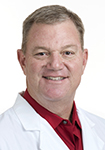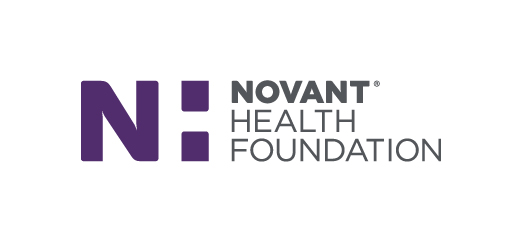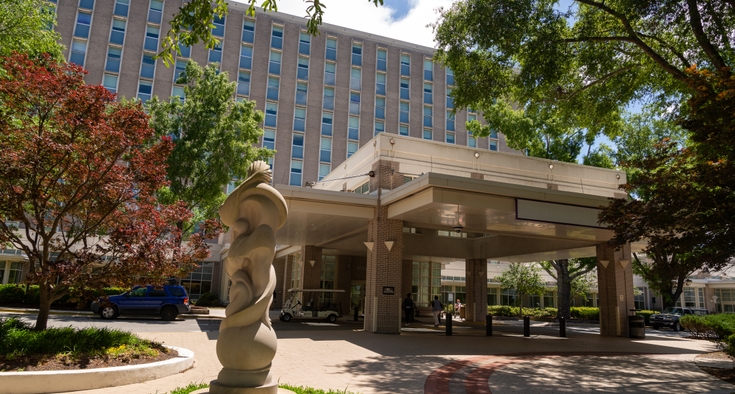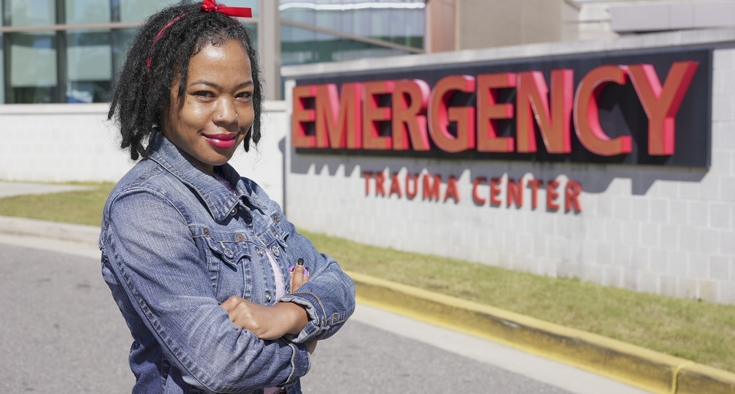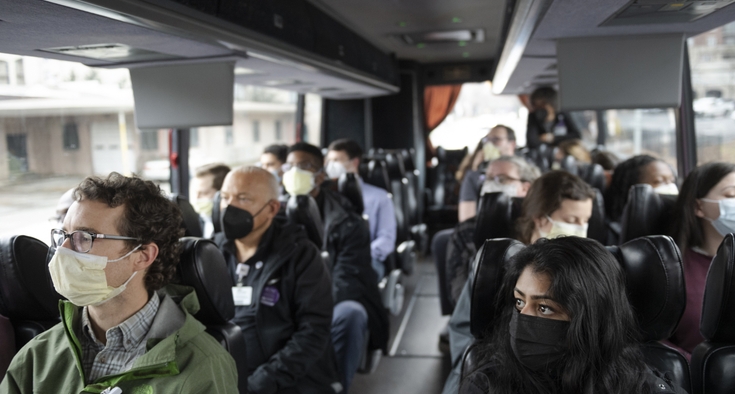For the past year, Novant Health teammates have been asking patients: In the past 12 months, have you worried your food would run out before you got the money to buy more?
The number of patients who have answered “yes” might surprise you.
“In North Carolina, about 14% of our population is food insecure, meaning that sometimes or often, they're not sure they're going to be able to feed their family that day,” said Dr. William Hammill, a pediatric cardiologist at Novant Health Pediatric Cardiology - Elizabeth in Charlotte. “We embarked on a screening program, and by the end of November, we’d screened over 1 million patients.”
Food insecurity – a serious problem that’s been exacerbated by widespread inflation – is associated with increased health risks, including birth defects, diabetes, high blood pressure, poor sleep and mental health conditions.
Hammill is leading the systemwide effort to address food insecurity among patients and communities served by Novant Health. He devotes three days a week to in-clinic patient care and the other two days to this vital initiative. The former chair of Novant Health’s pediatrics department considers the work an honor and a calling.
“I'm passionate about taking care of the widows, orphans and babies,” he said. “For me, it’s a biblical thing. I have also wrestled with owning that I'm a privileged, white male. I saw opportunities to get involved. If we're really going to move the needle on morbidity and mortality, only 20% comes from what we do in the clinic. The other 80% comes from understanding the social determinants of health.”
Access to healthy food is one of those determinants. So is access to affordable housing, transportation, a good education and mental health services.
Caring for the whole person
“It could be a provider; it could be the nurses. If patients have not been asked this question within the last 12 months, then they’ll be asked on their next visit in a confidential, discreet manner,” Cammon said. “If it’s determined that they are food insecure, we have another question that pops up to ask whether or not they have enough food for today. If they don't, we’re able to offer an emergency food pack that could feed them up to four days. There’s even a ready-to-eat, pop-top option for people without access to a microwave or cooking element."
Each month an average of 3,000 patients screen positive for food insecurity at Novant Health medical group clinics, with 400 to 600 patients not having food for that day.
“When someone doesn’t have food for the day, there’s now an interventional response," Common said. "Before we started offering these food packs, some of our clinic staff would use their own money to buy food for patients in need.”
But Novant Health isn’t stopping with the emergency food packs. The team is making referrals to food pantries that can provide more sustainable access.
“The most important part of the process is connecting people to local resources through our community platform,” Cammon said. “They need access that’s sustainable.”
Novant Health has partnered with Second Harvest Food Bank of Metrolina (in Charlotte) and Second Harvest Food Bank of Northwest N.C. (in Winston-Salem) to help the patients referred to them.
Novant Health New Hanover Regional Medical Center has been partnering with the Food Bank of Central and Eastern North Carolina to provide similar services since 2020 and has plans to expand the emergency food pack program to all Novant Health medical group clinics on the coast. Beginning in January 2023, the emergency food packs in the Coastal region will be provided by in-kind donations from Food Lion.
In fact, New Hanover Regional Medical Center has been addressing food insecurity on multiple fronts in southeastern North Carolina since 2017. Leaders there provided crucial help in the systemwide rollout.
“They were at the table with us every step of the way,” Cammon said. “We were able to tap into their best practices, resources and knowledge.” (Stay tuned for a Healthy Headlines story on those efforts in the near future.)
Taking advantage of 'My Chart'

It’s amazing to see what results asking just one question can yield. But the team continues to fine-tune the approach.
“We’ve gotten better at asking questions,” Hammill said. “For instance, we’re not going to ask outright in front of your kids. We can also use our electronic medical record or other avenues.”
Team members can use “My Community,” a tool built into “My Chart” on the medical records portal that allows them to make referrals.
And in a particularly creative response, Novant Health social workers in Winston-Salem developed a QR code that can be affixed to exam room doors. If a patient screens positive, they can use their phone to take a picture of the QR code and learn what resources are available in their ZIP code.
And more to come
The referrals and emergency food packs are “the tip of the iceberg,” Hammill said.
“We want to create programs for disease-specific populations – for people with diabetes or heart failure or the geriatric population. We want to partner with growers to get more fresh produce to those who need it. We want to give our team members more opportunities to volunteer in support of this effort.”
There is also an ongoing program for food-insecure pregnant patients that aids them throughout their pregnancy and into their postpartum period. The program involves a Novant Health team member directly connecting moms with local partner Loaves & Fishes to arrange food pick-up and deliveries in addition to identifying other social needs that the patient and their family may have.
Families that have been part of the Novant Health Nourishes program “appreciate that we asked the question and got them plugged into resources,” Hammill said. “The response has made us realize that, if you're positive for food insecurity, it's very likely you may have issues with transportation, housing, employment or mental health. So, that one question is a door opener.”
The question has led to some surprising findings - food security can affect anyone. “We’ve learned it’s often people you would never have expected to be wrestling with food insecurity. You don't know until you ask, and the onus is on us to ask – and then appropriately try to help.”
He emphasizes that Novant Health is in this effort for the long haul. “This is a marathon,” he said. “It’s not a sprint. We can change the lives of the patients we serve.”
Novant Health Foundations
Community and team member donors helped make this program possible through Novant Health foundations. Click here to connect with your local foundation team to learn more, or make a gift to help save and improve more lives today.






